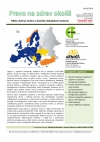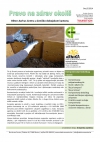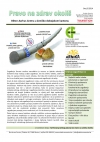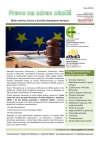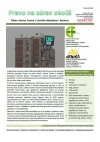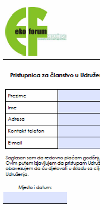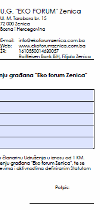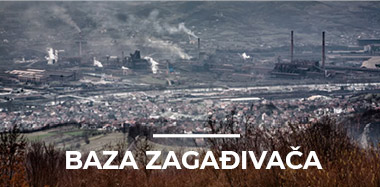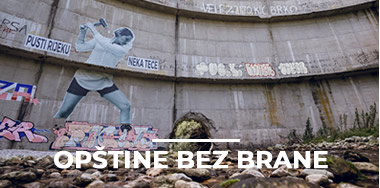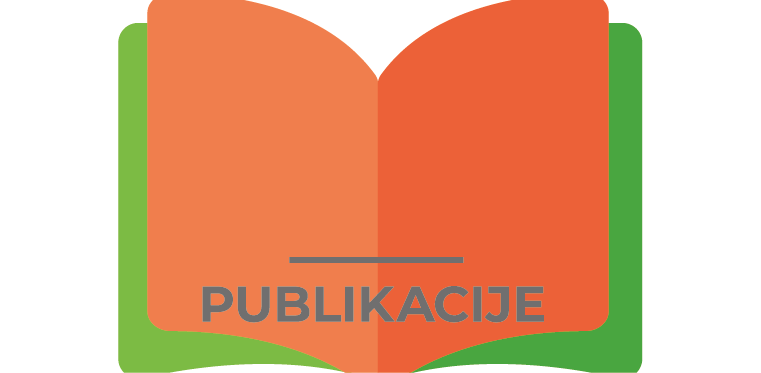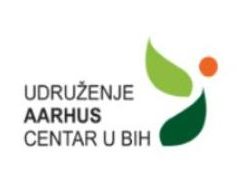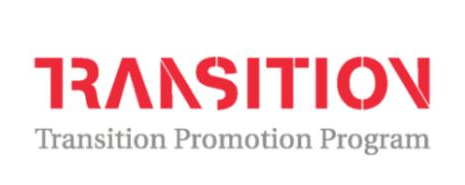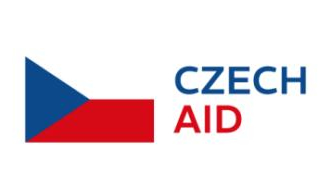
Newsletter
Newsletter "Right to a healthy envirionment"

Partners
Contact
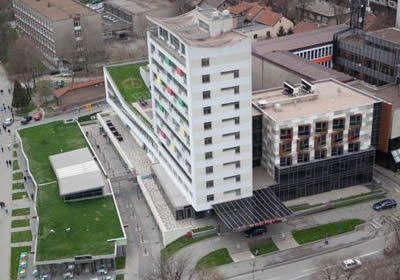 Association Eco-forum Zenica
Association Eco-forum ZenicaŠkolska 10 (Metalurg City Centar)
72000 Zenica
Bosna i Hercegovina
| E-mail: | This email address is being protected from spambots. You need JavaScript enabled to view it. |
| Kadić Azra | This email address is being protected from spambots. You need JavaScript enabled to view it. |
| Lemeš Igda | This email address is being protected from spambots. You need JavaScript enabled to view it. |
| Šišić Denis | This email address is being protected from spambots. You need JavaScript enabled to view it. |
| Lemeš Samir | This email address is being protected from spambots. You need JavaScript enabled to view it. |
134-010-00003713-39 Investiciono komercijalna banka Zenica
IBAN : BA391340071200118993
SWIFT: IKBZBA2X
The laws and regulations of Zenica City
The laws and regulations of Zenica-Doboj Canton

- Regulations on plants and facilities which can be built and operated only with the environmental permit (14/13)
- The Law on Protection against noise (1/14)
- The Law on Protection of Environment (1/00)
- Law on announcement of natural monument "Tajan" (3/08)
- The law on delegation of public authority in the field of environmental protection (12/13)
- Plan for cases of excessive air pollution in the Zenica - Doboj Canton (1/13)
The laws and regulations of Federation of B&H

- Law on Free Access to Information in FBiH (32/01)
- Law on organization of administration in FBiH (35/05)
- Law on Federal Ministries and other bodies of the federal administration - consolidated text
- The Law on Civil Service in FBiH (4/12) - changes
- The Law on Civil Service in FBiH (8/06) - changes
- The Law on Civil Service in FBiH (23/04) - changesThe Law on Civil Service in FBiH (29/03)
- The Law on Civil Service in FBiH (39/04) - changes
- The Law on Civil Service in FBiH (54/04) - changes
- The Law on Civil Service in FBiH (67/05) - changes
- The Law on the grounds of jurisdiction of local government in FBiH (49/06)
- The Law on the grounds of jurisdiction of local government in FBiH (51/09) - changes
- The Law on Administrative Procedure in FBiH
- The Law on Administrative Disputes in FBiH
- The Law on Inspection in FBiH (73/14)
- The Law on Minor Offences in FBiH (63/14)
- The Law on Environmental protection in FBiH (33/03)
- Law on Amendments to the Law on Environmental Protection (39/09)
- The Law on Environmental Protection Fund in FBiH
- The Law on Nature Protection in FBiH (33/03)
- The Law on Water in FBiH (70/06)
- Regulation on Forests in FBiH (26/10) - changes
- Regulation on Forests in FBiH (38/10) - changes
- Regulation on Forests in FBiH (60/11) - changes
- Regulation on Forests in FBiH (83/09)
- The Law on conditions-manner of wood cutting in FBIH (25/06) - changes
- The Law on conditions-manner of wood cutting in FBIH (27/97)
- Law on Seeds and Seedlings of Forest and Horticultural Tree (8/10) - changes
- Law on Seeds and Seedlings of forest and horticultural species of trees and shrubs (71/05)
- Guide on Air Quality Monitoring (1/12)
- The Law on Air protection in FBiH (04/10) - changes
- The Law on Air protection in FBiH (33/03)
- The Law on Veterinary in FBiH (46/00)
- The Law on Hunting in FBiH (4/06)
- The Law on Hunting in FBiH (8/10) - changes
- The Law on Freshwater Fisheries in FBiH (64/04)
- The Law on Agriculture in FBiH (88/07)
- The Law on Agricultural Land in FBiH (52/09)
- The Law on protection from ionizing radiation in (15/99)
- The Law on Mining in FBiH (26/10)
- The Law on Geological Research in FBiH (9/10)
- The Law on Spatial Planning in FBiH (02/06)
- The Law on Spatial Planning in FBiH (04/10) - changes
- The Law on Spatial Planning in FBiH (13/10) - changes
- The Law on Spatial Planning in FBiH (32/08) - changes
- The Law on Spatial Planning in FBiH (72/07) changes
- The Law on Concessions in FBIH (40/02)
- The Law on Concessions in FBIH (61/06) - changes
- The Law on Electrical Energy in FBiH (66/13)
- The law on the use of renewable energy sources and efficient cogeneration (70/13)
- The Law on Waste Magement in FBiH (33/03)
- The Law on Waste Magement in FBiH (72/09) - changes
- The Law on National Park UNA (44/08)
- The Law on Healthcare in FBiH (46/10)
- The Law on Statistics in FBiH (9/09) - changes
- The Law on Statistics in FBiH (63/03)

- Aarhus Convention
- The Law on Free Access to Information - 26/11 (Changes)
- The Law on Free Access to Information - 28/00
- The Law on Free Access to Information - 45/06 (Changes)
- The Law on Free Access to Information - 102/09 (Changes)
- The Law on Council of Ministers of BiH
- The Law on government of BiH (consolidated text)
- The Law on ministries and other governance bodies in BiH (consolidated text)
- The Law on Civil Service in the BiH institutions (consolidated text)
- The Law on Administrative Procedure in BiH (12/04) - changes
- The Law on Administrative Procedure in BiH (41/13) - changes
- The Law on Administrative Procedure in BiH (88/07) - changes
- The Law on Administrative Procedure in BiH (92/02)
- The Law on Administrative Procedure in BiH (93/09) - changes
- The Law on Administrative Disputes in BiH (19/02)
- The Law on Administrative Disputes in BiH (74/10) - changes
- The Law on Administrative Disputes in BiH (83/08) - changes
- The Law on Administrative Disputes in BiH (88/07) - changes
- The Law on plant health protection in BiH (23/03)
- The Law on the Protection of New Varieties of Plants in BiH (14-10)
- The Law on the Protection of New Varieties of Plants in BiH (32/13) - changes
- The Law on seeds and plantning materials in BiH (03/05)
- The Law on veterinary in BiH (34/02)
- The Law on protection of animals in BiH (25/09)
- The Law on Agriculture, Food and Rural Development in BiH (50/08)
- The Law on Genetically Modified Organisms (23/09)
- The Law on Phyto-Pharmaceutical Products in BiH (49/04)
- The Law on concessions in BiH (32/02)/td>
- The Law on concessions in BiH (56/04) - changes
- The Law on radiation and nucleary safety in BiH (88/07)
- The Law on statistics in BiH (26/04)
Access to justice
The third pillar of the Aarhus Convention, access to justice, giving the public, or all citizens and associations representing them, the right to penalties for violations and compensation by public authorities in relation to access to information and public participation in the decision making process. The Aarhus Convention obliges States which ratified it to establish an appeals procedure, which must be adequate and effective. Legal decisions must be recorded in writing, and must be available to the public. Citizens need to be informed about the opportunities available to them to initiate administrative or judicial procedures. Government institutions must establish mechanisms to help to remove or reduce financial barriers to access to justice. The Aarhus Convention provides for access to justice as a right that is realized in the broadest possible sense. First, the basic criteria that states must respect are determined, and then the responsibility for the detailed determination of this right is imposed.
Recognizing the right of every person "to live in the environment favorable for good health and well-being", the Convention also covers all situations in which this right is not guaranteed. Furthermore, the Convention obliges states that have ratified the Convention to abandon any narrow view of access to justice. Established "sufficient interest" justifying judicial proceedings in accordance with the Convention. However, in practice there are often limitations imposed by national laws.
Human rights and the Aarhus Convention
Article 3 of the Law of the Federation of Bosnia and Herzegovina on Environmental Protection ("Official Gazette of BiH", No. 33/03) defines the "right to environment" as follows:
Every person has the right to a healthy and eco-friendly environment as a basic constitutional right.
Every human being has the right to live in an environment which is friendly for the health and well-being, therefore, it is an individual and collective duty to protect and improve the environment for the benefit of present and future generations.
The Aarhus Convention regulates the rights of man to live in an environment that ensures the health and welfare, and ensures that such an environment is preserved and improved in the interest of present and future generations. Convention extends this right to the right of citizens to access the information, to participate in decision-making and to be protected before the competent state authorities. These rights are universal human rights (right to information, the right to participate in decision-making, the right to judicial protection), which has long been located in the most important international documents on human rights. In this Convention, the rights were linked to the environment for teh first time.
Basic concepts and definitions
The public means one or more natural or legal persons and, in accordance with national legislation or practice, their associations, organizations or groups;
The public concerned means the public affected or likely to be affected or has an interest in making decisions concerning the environment.
Non-governmental organizations promoting environmental protection and meeting the other requirements of national legislation are considered to be interested in the sense of the foregoing definition, and before the public authorities do not have to prove a property of an interested party.
The judicial procedure
Each procedure before the judiciary (in the broad sense) is a procedure which preceded a law limiting the rights set. Proceedings before the Court involves at least two parties to the dispute, one whose rights have been violated, and on the other side of the breach. Without getting into the way in which a neutral and independent body (court) decision, fast procedure time "injustice" shortens, or violation of the right to fix. In practice, if one denied the right to information, and on the occasion that an action, it is essential that you will solve the injustice in what time frame. It is possible that the disposal solutions, lead to the inability of the decision or will not be repaired the injustice inflicted on the restriction of the right.
Equity
The right to a fair trial is one of the basic human rights and fundamental rights, explicitly stated in the European Convention on Human Rights and Fundamental Freedoms man. The Constitution of BiH guarantee the high level of protection of all human rights enshrined in the European Convention, which was the right constitutional right of every citizen of Bosnia and Herzegovina. Fairness is achieved through consistent compliance with the basic principles of procedures that include:
- The independence of the courts (and administrative bodies)
- Legality
- Equal treatment of parties
- The right of each party to be heard, and that her statements (evidence) are treated in the peer context as the evidence of other party
Transparency
One of the basic legal principles is transparency, i.e. openness of the proceedings. According to this principle, every citizen who has an interest or is likely his interest (the term used in the fields of legislation) has the right to monitor, or to have a full insight into the state of proceedings. This means that it has the full right to inspect the files, you can make copies of certain documents. From this rule the only exempt are records from deliberations, outline solutions, writings which were officially introduced as confidential and those records whose transparency can have a negative impact on the personal rights of a participant in the process.
Public participation
The second pillar of the Aarhus Convention is based on the concept of public participation and is derived from the Principle 10 of Rio Declaration: Environmental Issues / environment are best solved with the participation of all concerned citizens at certain levels.
What are the minimum requirements / conditions for public participation?
In short, the Convention imposes the following basic requirements / conditions of public institutions of government:
- To inform the public about the process of public participation,
- To take the comments into account and inform the submitter comments.
Participation requires from public to be informed. It is therefore very important to provide and to make available precise, accurate and timely information to the public. Deadlines for public participation must be provided at the earliest possible stage, from the start of the first phase of the process, when all options are still open, according to pre-established schedule. Finally, public authorities must take into account the results of public participation in the process of making a final decision. The public must be informed of the type to which extent the results of public participation taken into account. If public opinion is not taken into account when making decisions, the authorities must explain the reasons for it.
Who benefits from the right to participate?
All interested citizens can participate in the consultation process. Non-governmental organizations dealing with environmental issues / environment are de-facto included in this target group under the Convention (Article 2.5).
What are the different types of decisions covered by the Convention?
There are four types of decisions concerning the right to public participation:
- Issuance of permits for certain activities or installations
This common form of public participation is mainly implemented for licensing, such as environmental permits. This applies when the approval for certain activities or projects is required, arising from particular sectors/activities that are believed to contain highly pollutants (chemicals, energy, waste, etc.) or can have a significant impact on the environment/environment. This allows the public to contribute to the decision-making process.
Two articles of the Aarhus Convention deal with this form of public participation:
Article 6 of the Convention provides the following measures:
· Information pertaining to the licensing of these activities or projects, must be freely available to the public.
· The relevant authorities must also inform the public about decisions and must justify them.
· The appeal procedure is provided (Article 9.2 of the Convention).
Article 6 bis, introduced in the Convention in the form of amendments in May 2005, specifically deals with the issue of approval related to GMOs (genetically modified organisms). - Development plans and programs in the field of environment
Article 7 of the Convention offers the public the opportunity to participate in the development of plans and programs. This refers to the tools established by the public authority responsible for the organization, in time and space, activities of which are closely or remotely affecting the environment. For example: plans relating to spatial planning and environmental strategy / environment related, for example, the fight against climate change, management / waste management, and strategies for the protection of nature. - The development of environmental policy
The Convention recommends that public authorities allow the public to participate in the development of environment policy (Article 7). - Preparation and drafting of legislation.
In the preparation and drafting of legislation the Convention recognizes the role of the public. Article 8 provides the liability of public authorities to implement the necessary actions for effective public participation. It can also be carried out through a representative advisory bodies or the inclusion of representatives of associations concerned with environmental issues / environmental working group for drafting policy.


